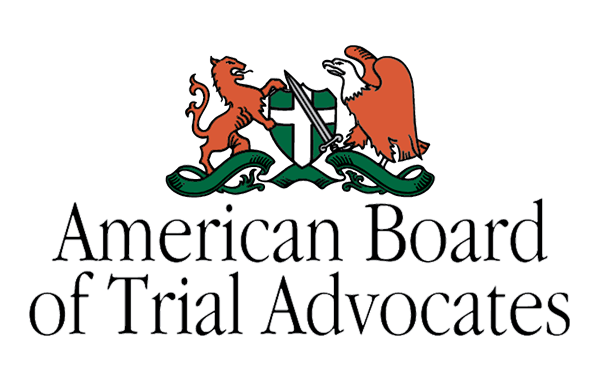When involved in a car accident in Texas, determining who is at fault is a critical factor in resolving any claims for compensation. Establishing fault is not always straightforward, and it requires a comprehensive understanding of Texas traffic laws, evidence gathering, and applying legal principles. To successfully recover damages in a car accident case, the injured party must show that the other driver acted negligently and that their negligence was the cause of the accident. Knowing how to prove fault is essential for navigating the complexities of a Texas car accident case.








Understanding Negligence in Texas Car Accident Cases
The foundation of proving fault in any car accident case in Texas is establishing negligence. Negligence refers to the failure of a driver to act with reasonable care under the circumstances. Drivers in Texas have a legal duty to operate their vehicles in a manner that is safe and does not put others at risk. When a driver breaches this duty by engaging in reckless or careless behavior, they may be held liable for any resulting injuries or damages.
To prove negligence, several elements must be satisfied. First, it must be shown that the driver owed a duty of care to others on the road. Second, there must be evidence that the driver breached this duty by acting in a way that a reasonably prudent driver would not have acted. Third, it must be demonstrated that the driver’s breach of duty directly caused the accident and that the injured party suffered damages as a result.
Common Causes of Car Accidents and Negligence
Car accidents in Texas often result from various forms of negligence, and identifying the specific type of negligence can be crucial in proving fault. Common causes of car accidents include distracted driving, speeding, driving under the influence, failure to yield, and disregarding traffic signals or signs. Each of these behaviors can serve as evidence of negligence in a car accident case.
For example, distracted driving, which includes texting, eating, or adjusting the radio, can show that a driver was not paying sufficient attention to the road, thereby breaching their duty of care. Similarly, speeding demonstrates a disregard for traffic laws and the safety of others, which can be used as evidence that the driver acted negligently. Collecting evidence that points to any of these negligent behaviors is an essential step in proving fault.

Protecting Your Rights
Gathering Evidence to Support Your Case
In a Texas car accident case, gathering the right evidence is critical to proving fault. The evidence should clearly show that the other driver was negligent and that their negligence caused the accident. Some of the most common types of evidence used in car accident cases include police reports, witness statements, photographs or videos of the accident scene, and any available traffic camera footage.
The police report is often one of the most valuable pieces of evidence, as it provides an objective account of the accident and may include the officer’s opinion on who was at fault. Witness statements are also important because they offer additional perspectives on how the accident occurred. Photographs and videos can help to recreate the accident scene and show the positions of the vehicles involved, road conditions, and any other relevant factors that contributed to the crash.
In addition to these forms of evidence, medical records can also play a significant role in proving fault. Medical records document the injuries sustained in the accident and can demonstrate the severity of the impact, which may support claims that the other driver’s negligence caused substantial harm.
Texas Modified Comparative Fault Rule
Texas operates under a modified comparative fault rule, which is important to understand when proving fault in a car accident case. Under this rule, fault for an accident can be shared between the parties involved. If both drivers are found to be partially responsible for the accident, their percentage of fault will determine how much compensation they are entitled to receive.
For instance, if the injured party is found to be 20 percent at fault for the accident, their compensation will be reduced by 20 percent. However, Texas law bars recovery if a driver is found to be more than 50 percent at fault. This means that if you are determined to be primarily responsible for the accident, you will not be eligible to recover damages. Therefore, proving that the other driver was predominantly at fault is crucial for maximizing your compensation.
Role of Witness Testimony in Proving Fault
Witness testimony can be an invaluable resource in proving fault in a Texas car accident case. Witnesses who saw the accident occur can provide details that may not be immediately obvious or available through other evidence. For instance, a witness may have seen the other driver run a red light or swerve between lanes, which could be key pieces of information in establishing negligence.
Witnesses can be third-party individuals who had no involvement in the accident, or they can be passengers in the vehicles. Either type of testimony can help build a strong case. When witnesses are able to corroborate your version of events, it lends credibility to your claims and makes it harder for the other party to dispute fault.
The Importance of Accident Reconstruction in Complex Cases
In some car accident cases, particularly those that involve multiple vehicles or significant damages, accident reconstruction may be necessary to prove fault. Accident reconstruction involves analyzing the physical evidence from the accident, such as the position of the vehicles, skid marks, and vehicle damage, to recreate how the collision occurred. An accident reconstructionist can use this evidence to form an opinion about which driver’s actions led to the crash.
Accident reconstruction can be especially helpful in situations where there is conflicting testimony or when it is unclear how the accident unfolded. The reconstructionist’s analysis can clarify which vehicle initiated the accident and whether any violations of traffic laws occurred. Although accident reconstruction may not be necessary in every case, it can be an important tool for proving fault in more complex accidents.
Insurance Companies and Their Role in Determining Fault
After a car accident in Texas, the insurance companies of both parties will play a significant role in determining fault. Insurance adjusters will review the evidence from the accident, including police reports, witness statements, and any other available information, to make their own determination of fault. However, it is important to understand that insurance companies may not always be objective in their assessment, as they are motivated to minimize the payout to claimants.
If you disagree with the insurance company’s determination of fault, you have the right to dispute it. In many cases, the assistance of an attorney can be beneficial in challenging the insurance company’s findings. An attorney can help ensure that all relevant evidence is considered and that your rights are protected throughout the claims process.
Why Legal Representation is Important in Proving Fault
Proving fault in a Texas car accident case can be a complicated and time-consuming process, especially if the other driver disputes liability or if the evidence is not clear-cut. This is why having legal representation is crucial. An attorney with experience in Texas car accident cases will know how to gather and present evidence in a way that supports your claim. They will also be familiar with the intricacies of Texas traffic laws and how they apply to your case.
Additionally, if your case goes to trial, an attorney will be able to represent you in court and advocate for your best interests. They can cross-examine witnesses, present evidence, and argue your case to the judge or jury. While many car accident cases are settled before going to court, having legal representation can make a significant difference in the outcome of your case.
If you have been injured in a car accident in Texas, proving fault is essential to obtaining the compensation you deserve. The process of gathering evidence, dealing with insurance companies, and navigating Texas traffic laws can be overwhelming, especially when you are also recovering from your injuries. At Chavez Law Firm, we understand the challenges that accident victims face, and we are here to help. Our dedicated legal team will work tirelessly to investigate your case, gather the necessary evidence, and build a strong argument to prove fault. Contact Chavez Law Firm today for a free consultation to discuss your case and learn how we can assist you in pursuing the compensation you deserve.



